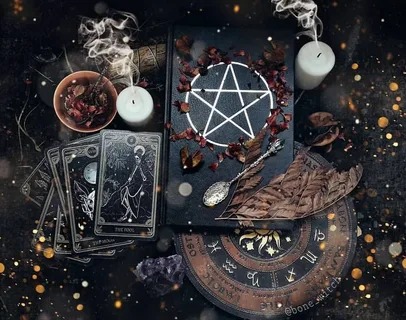what are Witchcraft, often shrouded in mystery and folklore, has intrigued and bewildered humanity for centuries. This article on Arabian Tongue website delves into the fascinating world of witchcraft, aiming to demystify its origins, practices, and misconceptions. From ancient traditions to modern-day interpretations, we will explore the diverse facets of this enigmatic subject.
The Origins of Witchcraft

Witchcraft’s history is a labyrinth of myths and realities. To comprehend its essence, we must journey back in time:
1. Ancient Beginnings
Witchcraft finds its roots in the ancient civilizations of Egypt, Mesopotamia, and Greece. Early practitioners were revered as healers and seers, wielding the power of nature.
2. The Dark Ages
During the Dark Ages, a shift occurred as witchcraft became associated with heresy and malevolence. This period saw the infamous witch hunts, resulting in countless trials and executions.
3. Cultural Variations
Witchcraft takes on diverse forms worldwide. From African witch doctors to Native American shamans, each culture has its unique interpretation of witchcraft.
4. The Salem Witch Trials
A dark chapter in American history, the Salem witch trials, resulted in the execution of innocent people. Uncover the events that led to this tragic episode.
5. Empowerment and Healing
Modern witches often view their practice as a source of empowerment and healing. Explore how witchcraft can provide a sense of connection to the natural world.
6. Witchcraft and Feminism
Many contemporary witches are women who see witchcraft as a form of feminism. Discover how the craft is intertwined with female empowerment.
Recommend: difference between envious and jealousy
Witchcraft Practices and Beliefs
Magic practices and actions are manifested in several aspects, among them:
- Wicca – A Modern Interpretation: Wicca, a contemporary pagan belief system, embraces witchcraft as a spiritual path. Wiccans revere nature and practice rituals that honor the cycles of the moon and seasons.
- Spells and Potions: Witches are often depicted casting spells and brewing potions. Explore the world of incantations, charms, and herbal remedies used by practitioners.
The Witchcraft Stereotype

Witches follow one shape and one pattern in style and clothes, as follows:
- Pop Culture Influence: Media and literature have perpetuated stereotypes of witches as green-skinned, pointy-hatted hags. Discover how pop culture has shaped our perception of witchcraft.
- Modern Witchcraft Revival: In recent years, there has been a resurgence of interest in witchcraft. Learn about modern witches who proudly embrace their craft, advocating for acceptance and understanding.
- Pact with the Devil: One common misconception is that witches make pacts with the devil. We’ll debunk this myth and explore the true nature of witchcraft beliefs.
- Harmful Intentions: Contrary to popular belief, most witches do not engage in harmful practices. We’ll shed light on the ethical principles that guide many contemporary witches, know that how to protect yourself from witchcraft.
The Manifestations of Witchcraft
the manifestations of witchcraft. Witches exhibit their abilities in several ways:
- Spellcasting: One of the most well-known manifestations of witchcraft is spellcasting. Witches use spells to influence events, people, or outcomes. Love spells, protection spells, and curses are some common examples.
- Divination: Divination is the art of predicting the future or gaining insights into hidden truths. Witches may use tarot cards, crystal balls, or scrying mirrors to practice divination.
- Herbal Medicine and Potions: Witches are often skilled herbalists. They create potions and brews with magical properties for healing, transformation, or even harm.
- Shape-Shifting: In folklore, witches are said to have the power to transform into animals or other beings. This manifestation of witchcraft adds an element of mystique to their abilities.
Read more: what does envy mean
Witchcraft in Quranic Texts

The Quran addresses the concept of witchcraft in several verses, shedding light on its existence, prohibition, and the consequences for those who practice it.
- Forbidden Practices: The Quran unequivocally forbids any form of witchcraft, emphasizing the importance of monotheism and the worship of Allah alone. The act of seeking supernatural powers through illicit means is considered a grave sin.
- Witchcraft in Arabia: To understand the Quran’s stance on witchcraft, we must consider the historical context of pre-Islamic Arabia, where pagan rituals, superstitions, and witchcraft were prevalent. The Quran sought to eradicate these practices and establish the pure worship of Allah.
- Prophet Solomon’s Story: The Quran narrates the story of Prophet Solomon’s encounter with witchcraft. His wisdom and reliance on Allah’s guidance enabled him to overcome the challenges posed by practitioners of sorcery.
- The Consequences of Witchcraft: Witchcraft is believed to lead individuals away from the path of righteousness, causing spiritual and moral decay. The Quran warns of the detrimental effects of engaging in such practices.
Learn Now: learn quran reading basics online course
FAQs
Is witchcraft a religion?
Witchcraft itself is not a religion, but it can be a component of various belief systems, such as Wicca.
Are all witches evil?
No, the majority of witches do not engage in harmful practices and often focus on positive intentions and healing.
Can anyone become a witch?
Yes, anyone can explore and practice witchcraft if they are interested and respectful of its traditions.
Are there male witches?
Yes, male practitioners of witchcraft are often referred to as witches or warlocks, depending on their tradition.
What are some common witchcraft rituals?
Common witchcraft rituals include casting circles, invoking deities, and working with candles, crystals, and herbs to manifest intentions and desires.
Conclusion
In conclusion, witchcraft is a complex and multifaceted subject that has evolved throughout history. From its ancient origins to its modern interpretations, it continues to captivate and mystify. By debunking misconceptions and understanding its various facets, we can approach witchcraft with a more open and informed perspective.


